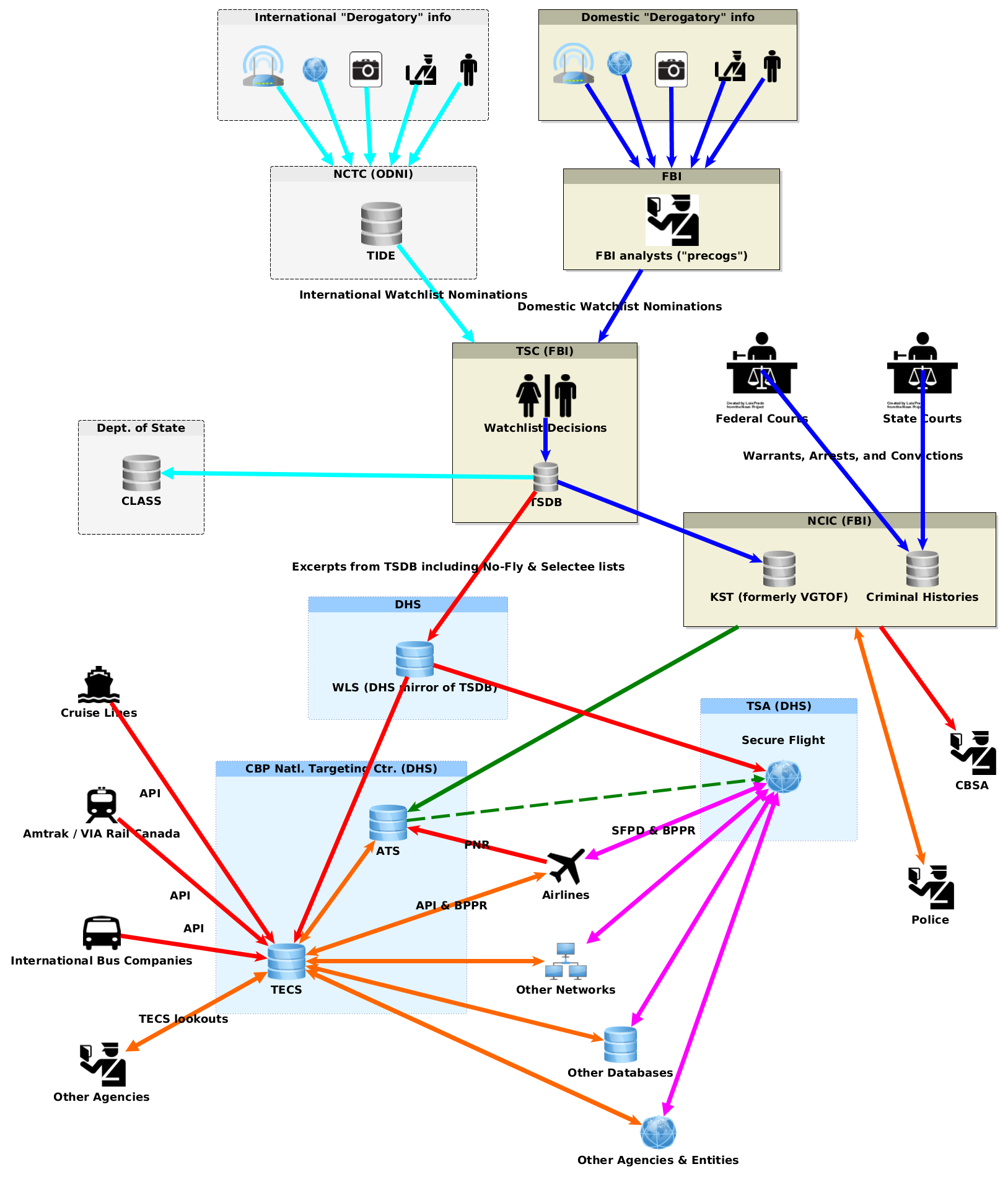No US passports for “terrorist sympathizers”?
Bills are moving forward in both houses of Congress which, if approved, would mandate the administrative, extra-judicial revocation, non-renewal, and refusal of issuance of a US passport to any US citizen, even if their citizenship is unquestioned and they have been accused of no crime, but “whom the Secretary [of State] has determined is a member of or is otherwise affiliated with an organization the Secretary has designated as a foreign terrorist organization pursuant to section 219 of the Immigration and Nationality Act (8 U.S.C. 1189).”
The proposed legislation would leverage administrative determinations related to immigration (which US courts have allowed to be largely exempted from judicial review insofar as they only affect foreigners who aren’t considered by the US to have the same human rights as US citizens) to impose a categorical ban on certain US citizens leaving or entering the US except at the (standardless, i.e. arbitrary) “discretion” of the Secretary of State.
Since June 1, 2009, US citizens have been forbidden by Federal law and regulations from crossing any border into or out of the US by any means (land, sea, or air) without a passport, passport card, or Federally-approved “enhanced” drivers license. Denial of a passport thus amounts to a categorical ban on leaving or returning to the US. As such, it is a blatant violation of the rights of US citizens pursuant to the First Amendment “right of the people… peaceably to assemble” and their human rights pursuant to Article 12 of the International Covenant on Civil and Political Rights:
2. Everyone shall be free to leave any country, including his own….
4. No one shall be arbitrarily deprived of the right to enter his own country.
The proposed law would not define how, on what basis, according to what procedures, or using what standard of proof the Secretary of State would make determinations as to membership or other “affiliation” of a US citizen with a blacklisted organization. To make matters worse, the bills proposing this travel ban for US citizens associated with blacklisted organizations contain no definition of “member” or “otherwise affiliated”.
If you don’t like the decision of the Secretary of State, the bill would provide you with a “Right of Review” entitling you to a hearing before … the Secretary of State.
Substitute “Communist” for “terrorist” in the proposed legislation, and it becomes clear that these bills would recreate the worst of the guilt-by-association witch-hunting of the MyCarthyist and other Red Scares.
Commie sympathizer? No passport for you! Terrorist symp? No passport for you!

